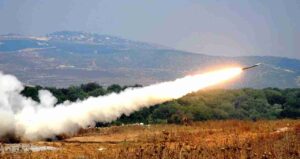Locations Affected: Sri Lanka
Sri Lankan President Anura Kumara Dissanayake called a snap parliamentary election for 14 November, shortly after being elected on 21-22 September.
The reason for the snap parliamentary elections
It is believed that President Dissanayake’s recent election win, with 42.3 percent of the vote, offers an opportunity to capitalize on his popularity and secure more seats in the 225-member parliament with the snap election. His National People’s Power alliance currently holds only three seats in the parliament, limiting his ability to push through policy changes.
Additionally, the current austerity measures tied to a USD 2.9 billion International Monetary Fund (IMF) bailout are unpopular in the country. President Dissanayake has promised to revise the terms but needs parliamentary backing to pass a budget. This occurs while Sri Lanka is restructuring USD 25 billion in foreign debt, and parliamentary support would strengthen the president’s position in negotiations with bondholders. Thus far, Anura Dissanayake has not been able to appoint a full cabinet due to the lack of parliamentary support, leaving key ministries under his direct control.
Information about the elections
- The nomination period for the parliamentary election will be from 04 October to 11 October.
- President Dissanayake appointed a three-member Cabinet on 24 September, consisting of Prime Minister Harini Amarasuriya, Vijitha Herath, and himself, to serve as the interim government until the elections are held.
- According to the Department of Government Information, President Dissanayake made a special statement during his national address on 25 September. The speech covered key issues, like plans for economic reforms and debt restructuring, and his pledge to dissolve the current parliament and call for snap general elections.
Potential outcomes of the upcoming elections
The upcoming snap elections could allow President Dissanayake’s coalition party to gain more seats in parliament and appoint a fully-fledged Cabinet. The election is also likely to cause delays in economic restructuring efforts aimed at addressing the country’s financial crisis and renegotiating the IMF’s debt terms. However, if he secures parliamentary support, there could be significant economic reforms in Sri Lanka, especially regarding tax cuts and debt restructuring. Political meetings and election campaigns are expected to trigger public gatherings, and snap elections may lead to protests by various political factions. Authorities may impose heightened security measures and travel restrictions around government buildings in Colombo and other regions. Organizations are advised to stay updated on the situation and prepare necessary contingency plans.






